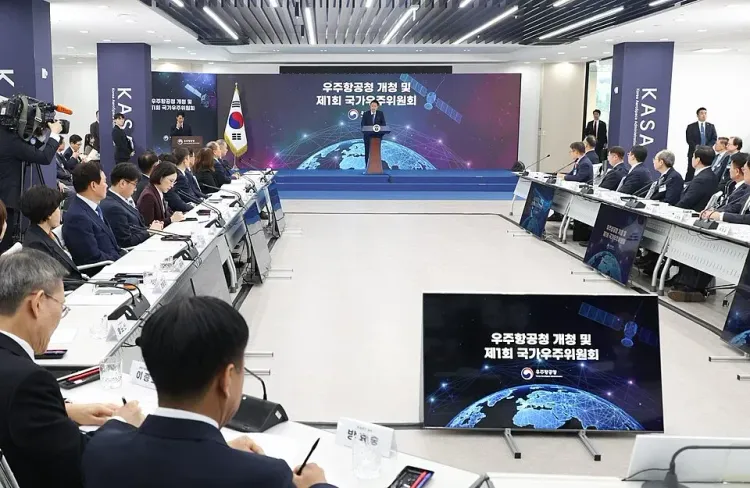Is South Korea's Space Agency Poised to Create a Reusable Launch Vehicle by 2035?

Synopsis
Key Takeaways
- KASA plans a reusable launch vehicle by 2035.
- The project is budgeted at 2.1 trillion won.
- Development is crucial amid global competition.
- Domestic demand could be met as early as 2034.
- Collaboration with the government is key for timely execution.
Seoul, June 20 (NationPress) South Korea's space agency announced on Friday its ambitious plan to develop a reusable space launch vehicle by 2035, aiming to stay competitive in the swiftly evolving global space industry.
The Korea AeroSpace Administration (KASA) is actively working to transform its 2.1 trillion-won (US$1.53 billion) project for a next-generation rocket, initially intended as a single-use launch vehicle, into a reusable system. The agency aims to acquire the necessary technology within the next decade, as reported by Yonhap news agency.
KASA emphasized that the timely development of reusable launch vehicles is essential in response to rapid developments in the global space transportation market, largely influenced by the successes of SpaceX's Falcon 9 and Starship.
"Every nation is working on reusable launch vehicles by 2030. If we manage to develop ours by 2035, we will still have a competitive edge," stated Park Jae-sung, director general at KASA, during a press conference. "Failing to keep pace could raise entry barriers too high, potentially sidelining us from the industry."
He elaborated that KASA's increased focus on reusable systems and its ongoing evaluation of the next-generation launch vehicle project are indicative of this strategic transition.
If everything goes as planned, KASA anticipates that the new vehicle could start addressing domestic space transportation needs by 2034.
Last month, KASA formally requested a governmental review to revise its development plan for the next-generation space launch vehicle, aiming to pivot towards a reusable rocket system. In February, KASA announced its intention to adapt its next-generation space rocket into a reusable format and achieve such technology by 2035.
In its reassessment request to the ministry, KASA indicated that this shift is part of its broader strategy to respond to the rapidly transforming global space landscape.
KASA expressed its commitment to collaborating closely with the ministry to ensure that the revised project plan is meticulously prepared and executed without delays.








